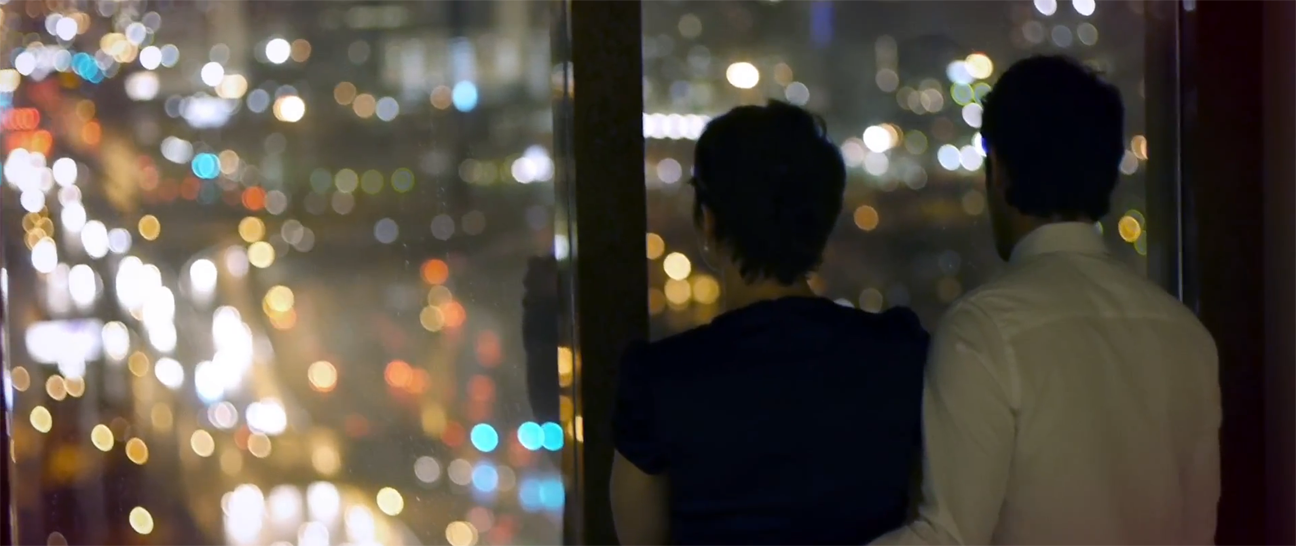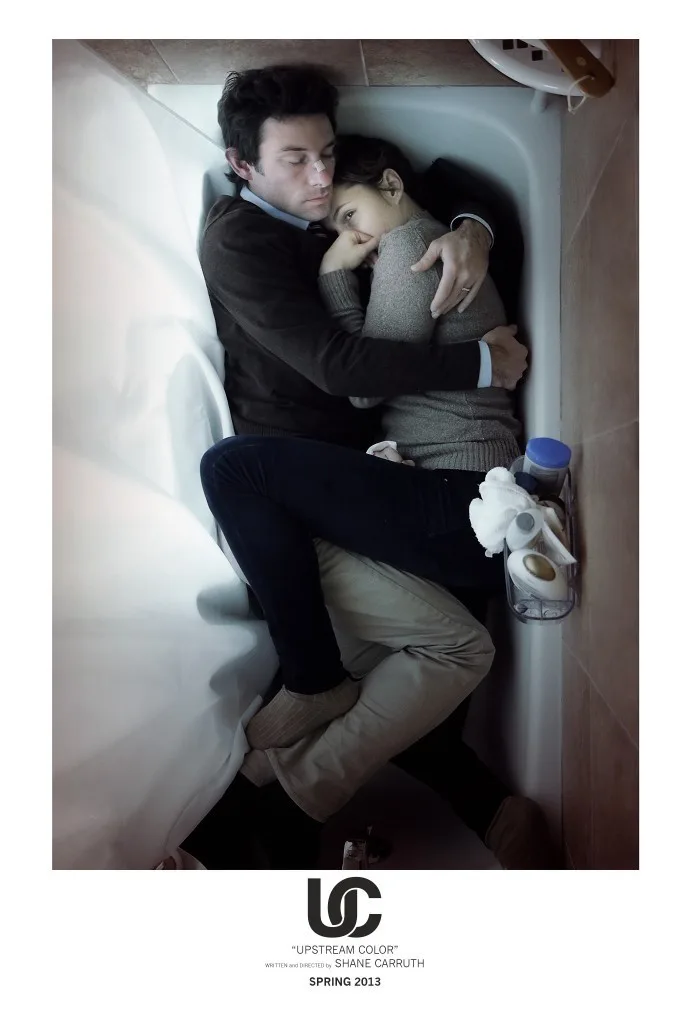Here is a movie you haven’t seen before. If you think you have, it’s probably because you swallowed a white worm that turned you into a pod-person subject to total mind control and now you’re having flashbacks. Or flash-forwards. Or peripheral flashes. Or maybe you’ve simply seen Shane Carruth’s previous film, the time-shuffling “Primer.”
“Upstream Color” might be described as an oblique romantic science-fiction mystery thriller. It’s only Carruth’s second feature, appearing nine years after his first, but one of the most striking things about it is that it’s recognizably the work of the same sensibility that imagined and composed “Primer.” Carruth’s elliptical debut, which won the top prize at the Sundance Film Festival in 2004, is a also a one-of-a-kind movie, and like this one an almost mathematical deconstruction of storytelling.
“Upstream Color” closely examines the very idea of sensibility — and identity, memory, perception — as if under a microscope. If that sounds a little obscure, well, the movie is designed as an enigmatic experience, to be absorbed, felt, puzzled over, free-associated about and reconsidered while you’re watching it and then for a good while afterwards. (Once you know what the title refers to, you still won’t necessarily know what it means.)
The story resists synopsis, and even the bits that can be summarized probably shouldn’t be, because “Upstream Color” can’t be reduced to a linear narrative. It’s not about what does or does not happen to whom and when. It is what it is, as it is, in any given moment.
So. The first thing we see is a plastic trash bag with some paper chains spilling out. A man in a green t-shirt grabs it and deposits it in a dumpster. A boy on a bike watches him. A man (the same one?) uproots some plants in a greenhouse and harvests the squiggling maggot-y worms in the potting soil. He puts a couple of them into medicinal capsules. Mirrors figure conspicuously.
Later (in terms of screen time, at least) something happens to Kris (Amy Seimeitz). The man, identified in the credits only as Thief (Thiago Martins), puts her under a spell. She sees, tastes, feels and does whatever he tells her to, but she can’t look at him because he says his head is made of the same substance as the sun. Her mind records entire conversations, and the complete text of Henry David Thoreau’s “Walden.” Another man, whom the credits call The Sampler (Andrew Sensenig), collects, records and plays sounds and performs synchronous surgery on Kris and a pig, apparently transferring a parasite from one to the other, establishing an indefinable psychic link between them.
Kris encounters Jeff (Carruth) on a train. They connect. Their thoughts get mixed up, which is to say that they’re both convinced that some of their memories have been appropriated by the other. Their conversations transpire in several different places at once, or perhaps at different times in the same place. Or different times at once — a mind-boggling concept that the “Primer” also played with. Some orchids growing on tree roots by the edge of a stream change color. More pigs occur. Some association is evinced between them, Kris and other somnambulists. Kris is confused and afraid.
Got that now?
“Upstream Color” is one of those movies that you either give yourself over to or resolutely resist. If not understanding something annoys you, you will struggle against it or simply disengage. You could say (or I would) that it’s an exploration of the textures of consciousness, the light, colors, sounds, images and ineffable resonances that, as George Harrison phrased it, flow “within you and without you.” The visuals and audio design are multi-layered and tactile, the emphasis on sensations underscored in the first section of the movie which mostly focuses on hands and a few feet. Not many faces. Heads, when they appear at all, are often seen from behind, as if we’re watching these people project the movie they’re living in front of them.
In the final paragraphs of his last review (of Terence Malick’s “To the Wonder“), Roger Ebert raised some questions that will stay with me: “Why must a film explain everything? Why must every motivation be spelled out? Aren’t many films fundamentally the same film, with only the specifics changed? Aren’t many of them telling the same story?” His point, of course, was that Malick’s movie was not just the same old story, yet it has some universal human themes swimming around in it.
Same goes for “Upstream Color.” If you look at it as a romance, for example, you might see it (as writer-director-cinematographer-editor-composer-star Carruth has said in interviews) as being about the new identity (not a baby, but a previously nonexistent entity) that is born when two people meld into “a couple.” If you look at it as science-fiction, you may concentrate on the role of the worms and the pigs and the sound designer/pig farmer. And if you’re a movie fan, you’ll no doubt pick up vibrations from Malick, Bresson (starting with those hands and feet), Tarkovsky, Godard, Buñuel, “2001: A Space Odyssey,” “Blow Out” …
Can it be “figured out”? Would that really explain anything if it could? I don’t know. But right now if feels kind of like a worm that’s been implanted under my skin and is still squirming around in my head.




















